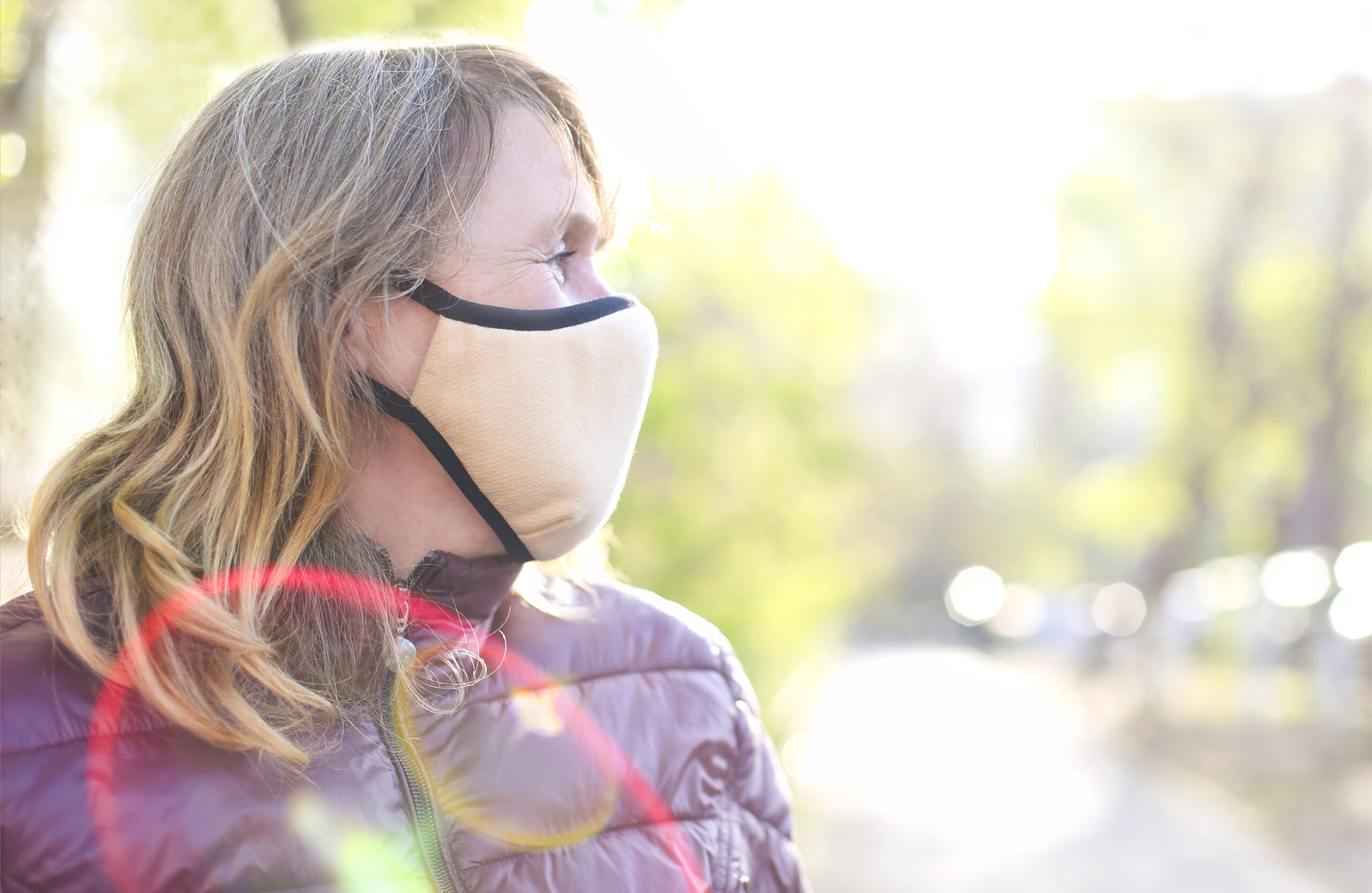With recent surges in the number of COVID-19 cases across North America, many states and provinces are issuing mandatory face mask orders for people entering any place of business or public indoor space. As frontline workers already know, wearing a face mask for extended periods of time can lead to skin irritation but the American Academy of Dermatology has plenty of suggestions to help minimize skin problems while keeping yourself and others safe.
The AAD recommends using a soft natural fabric like cotton which is less likely to cause skin irritation. The mask should fit snugly, but not too tight, to avoid friction against the skin or the need for frequent adjustment. If you must wear a mask for an entire day, try to take a 15-minute break outdoors, at home, or in your car every 4 hours. Wash hands before taking off your mask, use the ear loops to remove and then wash your hands again. For an Oldish TV episode on proper facemask donning and doffing, follow this link.
Men who wear beards may have already discovered they can’t get a good face mask fit with their current facial hair situation and have trimmed or shaved their faces. There is scarce data about whether or not facial hair plays a role in the transmission of the coronavirus but beard hygiene is always a good idea. Here’s a good beard infographic from the Centers for Disease Control and Prevention for workers who must wear tight-fitting respirators.
Cloth masks should be washed frequently, ideally after each use, using hot water and fragrance-free hypoallergenic detergent. Dermatologists recommend avoiding wearing cosmetics under your mask as they can clog pores and lead to breakouts. A layer of zinc oxide across the bridge of the nose, behind the ears and under the chin can help protect the skin from rubbing.
Skincare is also important while we must wear face masks. Gently cleanse and moisturize your face daily using fragrance-free products suited for your skin type. Moisturizer applied directly after washing your face can reduce dryness and create a protective barrier. Dimethicone can help protect easily irritated skin. Petroleum jelly on the lips can help prevent chapped lips.
Only apply exfoliants or other harsher skin products at night and avoid trying new treatments that could make your skin more sensitive. Retinoids, aftershave, and salicylic acid are some of the skincare products that may cause irritation. Use them sparingly and cut back if your skin is showing signs of irritation. Ceramides and Hyaluronic acid are ingredients in moisturizers than can help protect dry skin. Look for gel moisturizers for oily skin or during hot humid weather, a lotion for normal skin, and a cream formulation for dry skin.
If a new rash develops or your current skin condition worsens, talk with your dermatologist. Many healthcare professionals are seeing patients virtually using a telehealth platform if you are uncomfortable with or unable to make an in-person visit.






Add Your Voice
0 Comments
Join the Discussion